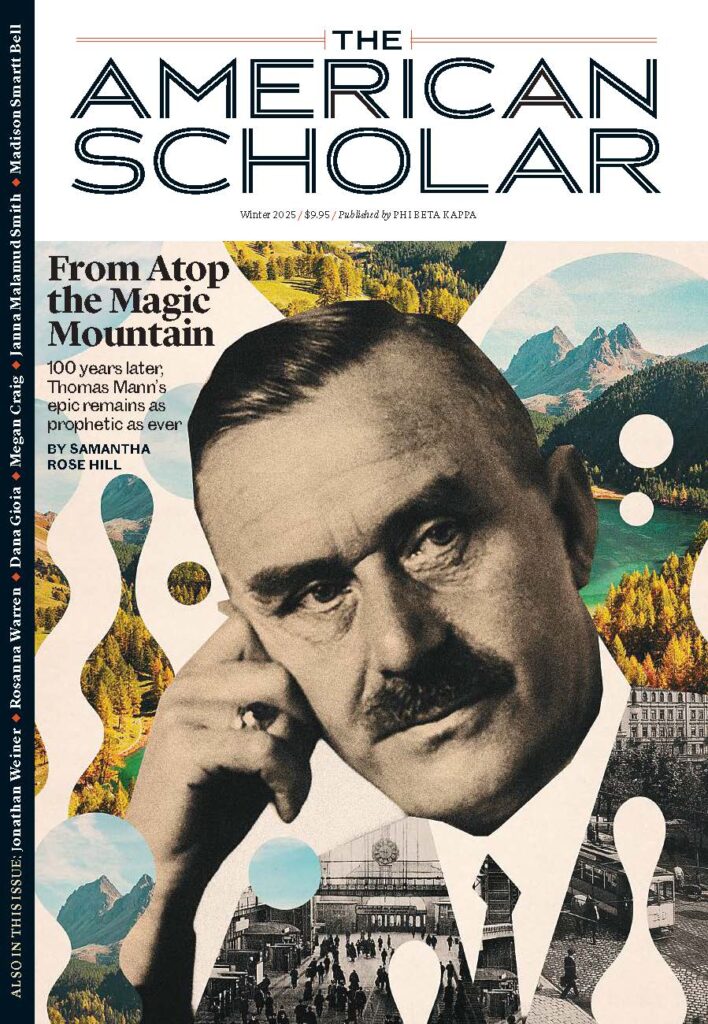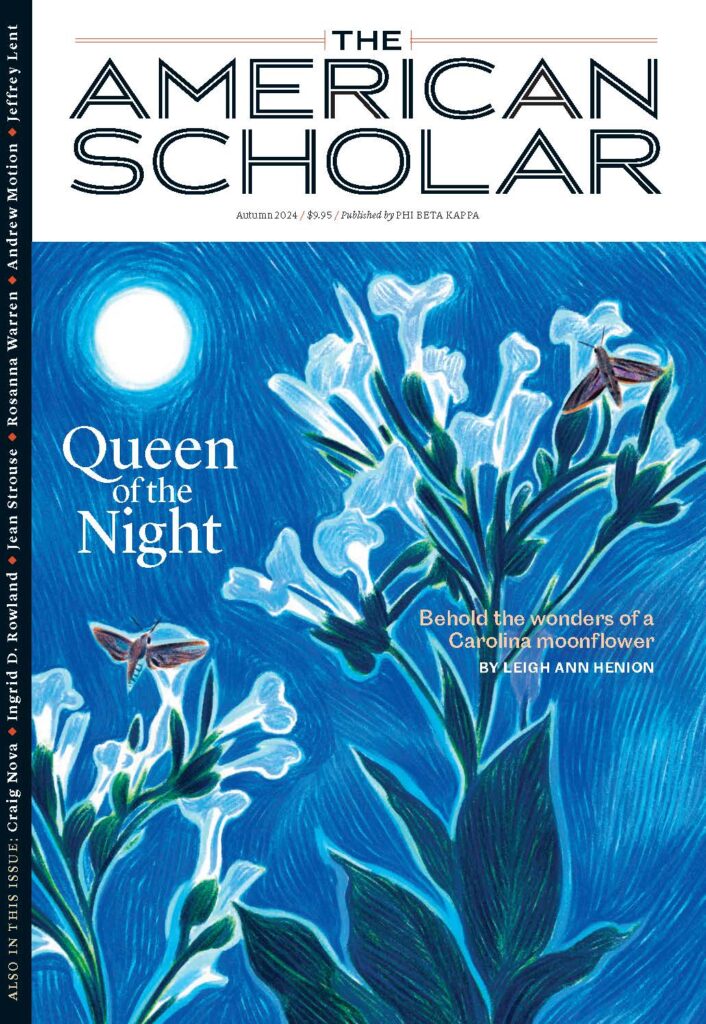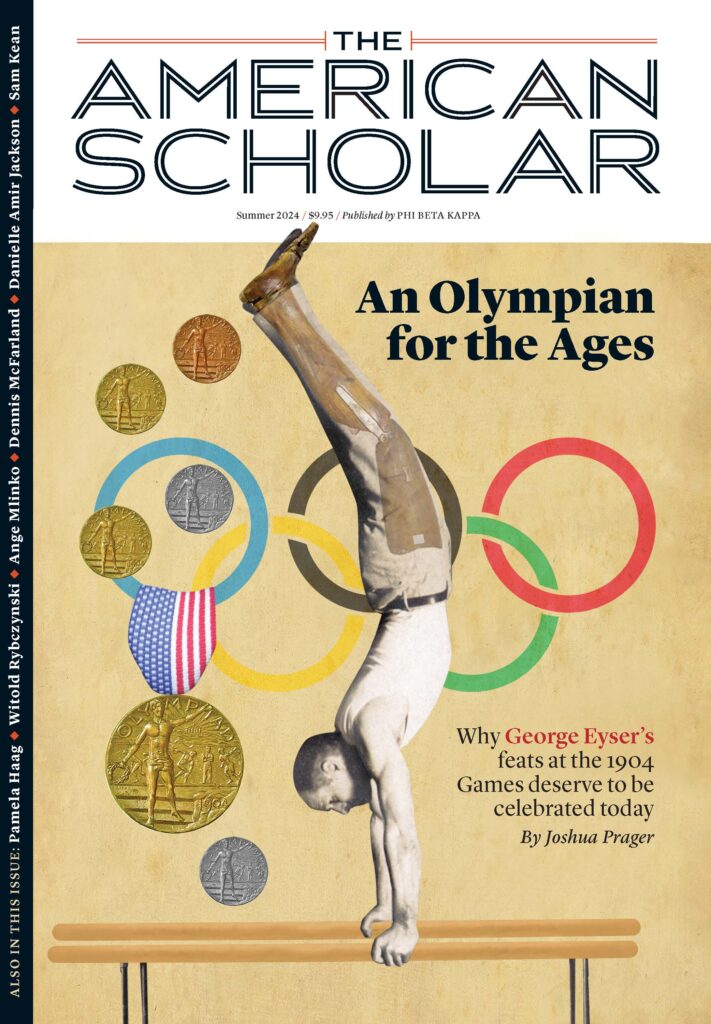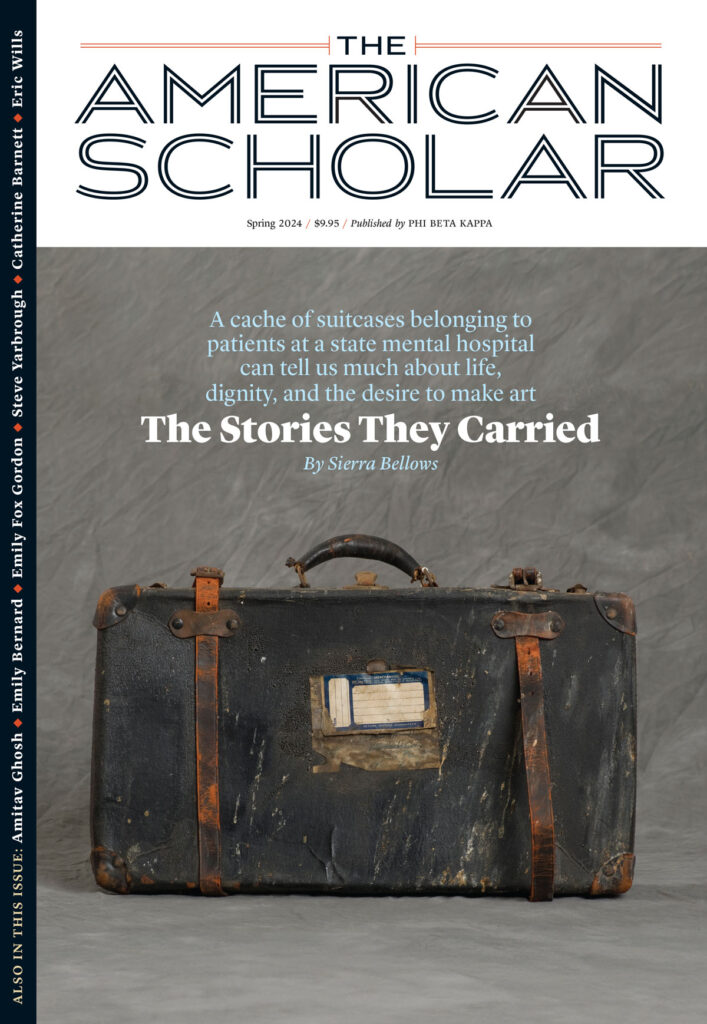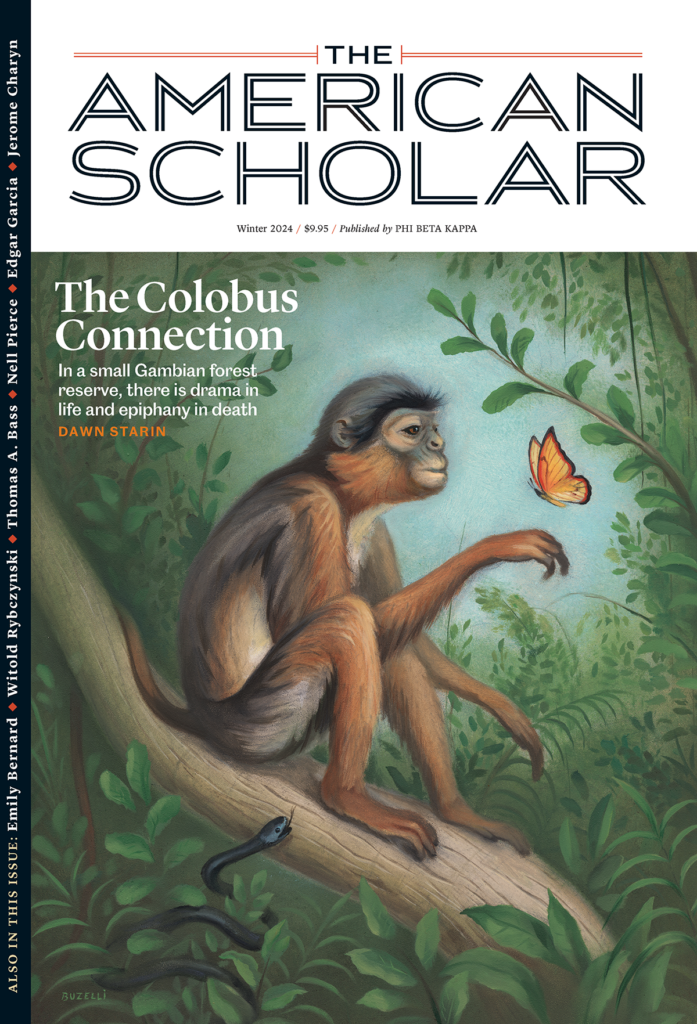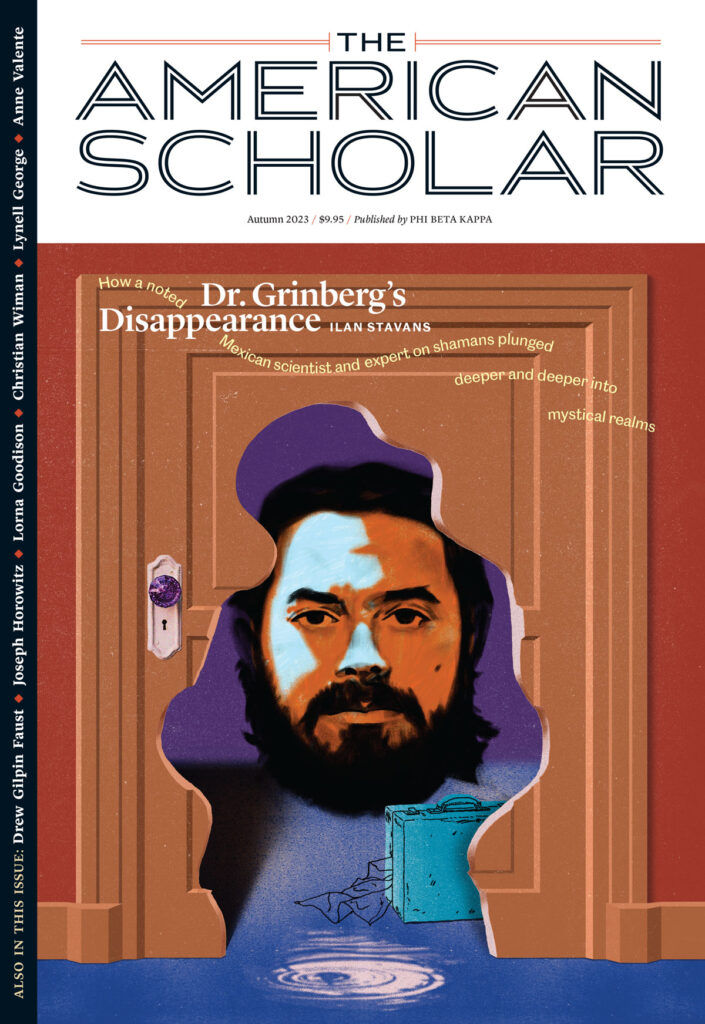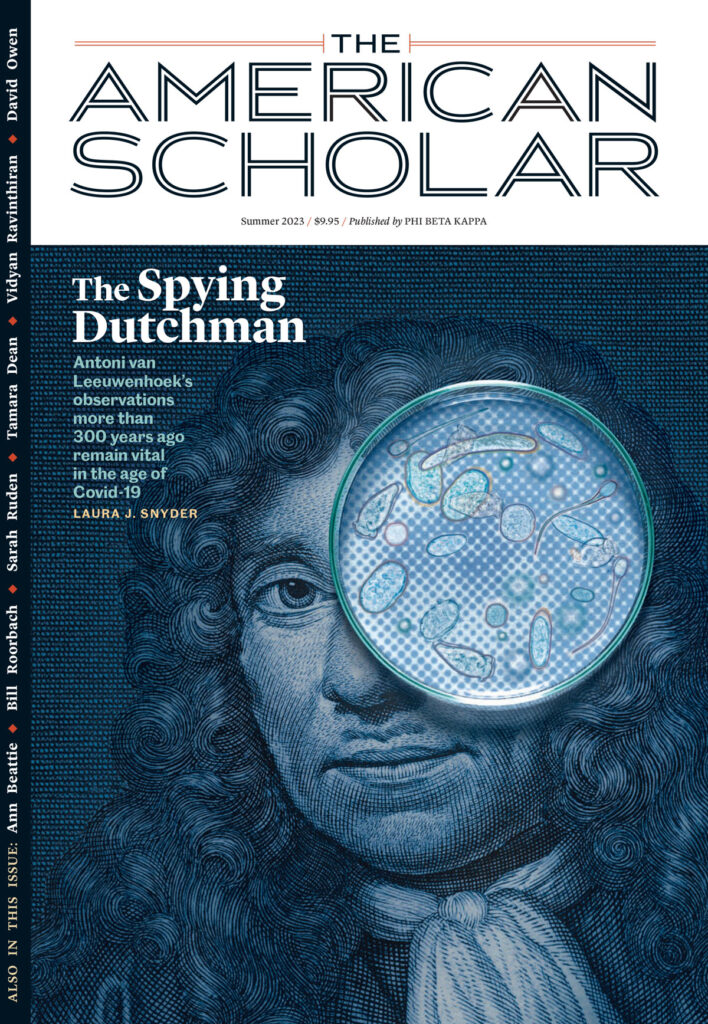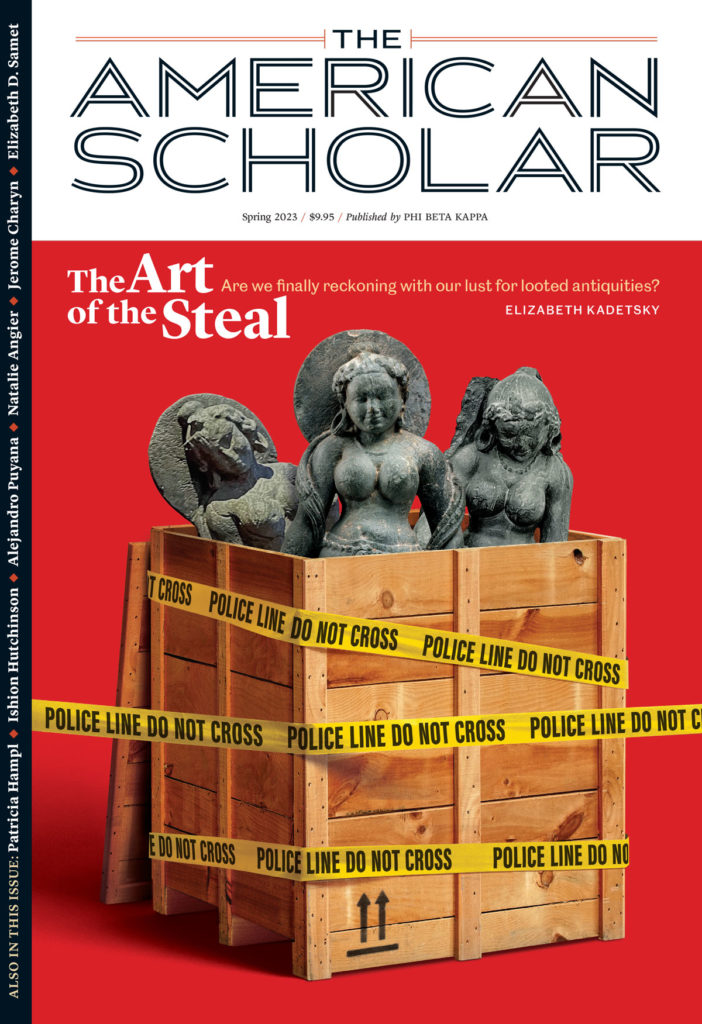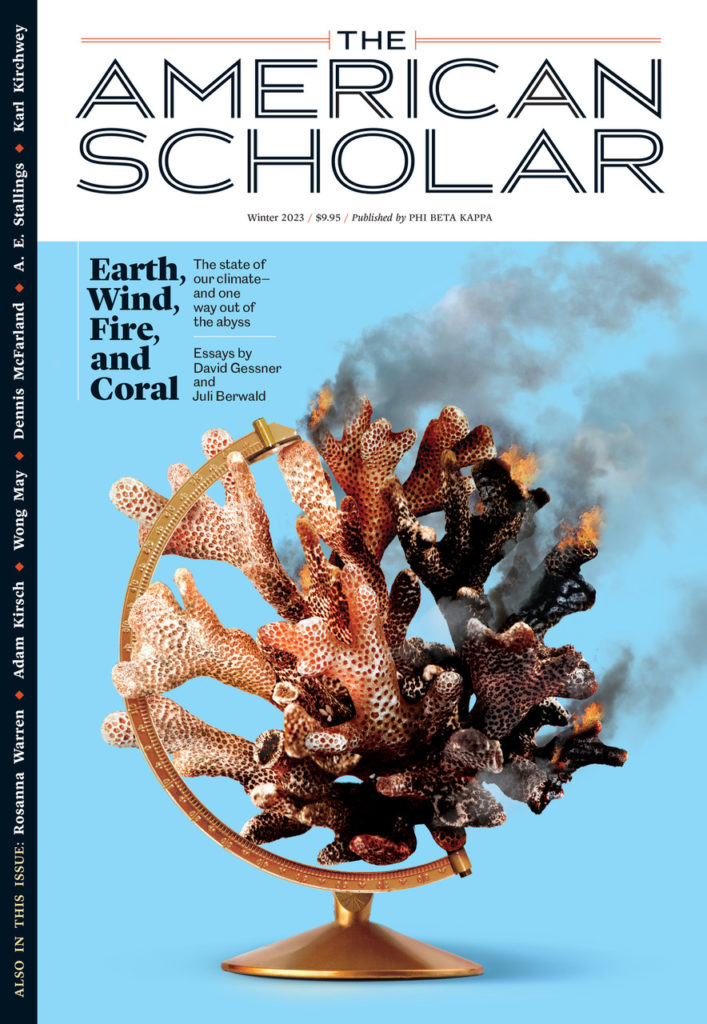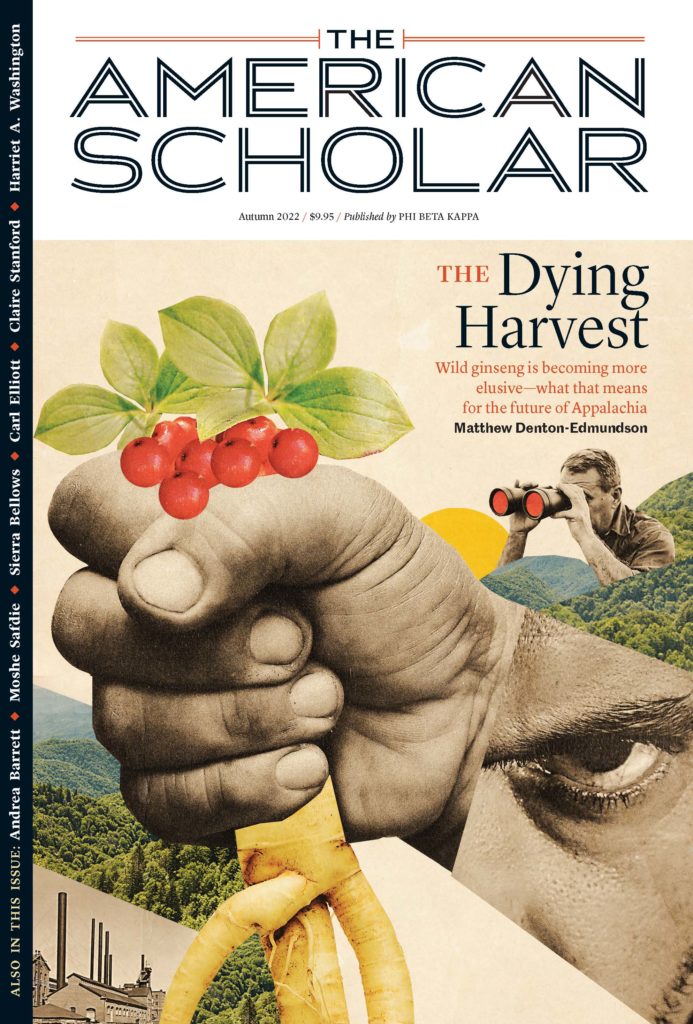Winter 2025
Plus: Samantha Rose Hill follows Thomas Mann to Switzerland, Michael Autrey hunts for porcini, and Megan Craig searches for stability in stone
Read MoreAutumn 2024
Plus: Augustine Sedgewick makes a new discovery about Thoreau, Joseph Horowitz brings Charles Ives and Gustav Mahler together, and Debra Spark cries foul … ball
Read MoreSummer 2024
Plus: Joshua Prager on a forgotten Olympian, Mickalene Thomas and the art of remixing, new poetry from Ange Mlinko, and more
Read MoreSpring 2024
Plus: Sierra Bellows on the suitcases found at a New York State mental hospital, Amitav Ghosh on India’s Chinese influences, Emily Bernard on the power of a name
Read MoreWinter 2024
Plus: Dawn Starin on the grand dramas of colobus monkeys, Greg Afinogenov on burying his dead, and new fiction from Nell Pierce
Read MoreAutumn 2023
Plus: Ilan Stavans on the mysterious disappearance of a Mexican scientist who dabbled in the mystical arts, Joseph Horowitz on the future of American classical music, and Lynell George on how Octavia E. Butler became a writer
Read MoreSummer 2023
Plus: Laura J. Snyder considers how Antoni van Leeuwenhoek’s discovery of microorganisms informs our Covid Age; Julian Saporiti resurrects the sounds of George Igawa’s World War II internment camp orchestra; and Sarah Ruden revises our revisionist histories of Vergil
Read MoreSpring 2023
Plus: Elizabeth Kadetsky on what a set of stolen stone goddesses can tell us about our current reckoning with antiquities trafficking; Matthew Denton-Edmundson imagines an animal rights movement not based on suffering; and John Dos Passos’s grandson reflects on his namesake’s love of the sea
Read MoreWinter 2023
Plus: Juli Berwald on capitalism and the coral reefs, Jessica Love on the collision of personal and parental identities, and Robert Zaretsky on Mary Wollstonecraft’s marriage advice
Read MoreAutumn 2022
Plus: Claire Stanford on Godzilla and Covid-19, Carl Elliott on mind-bending medications, and Sierra Bellows on the art of Matthew Wong
Read More
